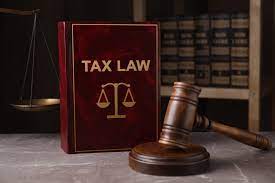Every country has different kind of taxes and to know about them you must be aware of each type of taxes that a country levies on its citizens. Some taxes people normally pay are sales tax, property tax, annual tax and personal income tax. One thing that is common in all kinds of taxes is that they are all based on your ability to pay them. According to a tax settlement lawyer serving in all of Missouri, when you are buying a house or a car, you have to pay the property tax even if you do not use it for a single day. When you are making monthly payments towards your loan on your car, you have to pay the sales tax even if you never plan to use it.
 All types of taxes levied on corporations are incorporated in a special governing document known as articles of incorporation. In this document, all corporate tax matters are decided along with the shareholders or owners. The corporate tax law clearly states who are the shareholders and how their votes are counted, said a tax debt lawyer in Oregon. The same applies to the directors and officers of a corporation.
All types of taxes levied on corporations are incorporated in a special governing document known as articles of incorporation. In this document, all corporate tax matters are decided along with the shareholders or owners. The corporate tax law clearly states who are the shareholders and how their votes are counted, said a tax debt lawyer in Oregon. The same applies to the directors and officers of a corporation.
Corporate taxes are different from personal income tax and sales tax in a number of ways. Firstly, corporate tax laws are imposed by the state in which the business operates. Hence, the nature of corporate taxes differs from state to state. Corporate tax rates are usually lower than personal income tax because the latter depends on the state’s overall taxation structure and is collected from the revenue administration.
Corporate tax liability on corporate shares and loans is calculated under federal income tax laws. The same applies to estate and gift taxes. Corporate tax liability on corporate partnerships also falls under federal income tax laws. State tax laws are separate and specific and the nature of state tax laws differ from that of federal income tax laws. There is a lot of inter-related subject matter and different rules applicable in both states and federal laws, thus making it difficult to understand the implications of corporate tax liability on a corporate share sale or loan.
Corporate tax liabilities, including federal income tax liability, include the value of shares purchased for the owner and any capital stock issued as a result of the purchase. These include long term and short term debts of the company. State tax laws have some exceptions that can be claimed only if the taxpayer satisfies a certain threshold requirement. These include self-employment income taxes, franchise tax, nontaxable dividends and some state taxes like the cigarette tax. When state income taxes are paid in full and no tax liability has been accrued on behalf of the beneficiary, the excess amount is generally refunded to the beneficiary.
Deferred tax liabilities occur when some tax payments are deferred until a later period and such payments occur in an annual basis. This could either be for a fixed period or an indefinite period. For example, the tax on payroll might be deferred until the employee gets his/her salary or during an annual vacation. Similarly, the tax on investment earnings is deferred until the investor receives his/her income from the sale or transfer of his/her interest in a business or asset. Any such deferred tax asset is then considered a non-taxable financial accounting advantage.
 If you are in need of tax debt relief and are not sure how to proceed, you should contact a tax lawyer for assistance. This is a wise choice because an
If you are in need of tax debt relief and are not sure how to proceed, you should contact a tax lawyer for assistance. This is a wise choice because an  The divorce lawyer that is representing either party will work with all parties to make sure that the divorce proceeding will be as quick and painless for all parties as possible. There are a number of steps involved with the divorce process and a divorce lawyer will help guide you through these steps.
The divorce lawyer that is representing either party will work with all parties to make sure that the divorce proceeding will be as quick and painless for all parties as possible. There are a number of steps involved with the divorce process and a divorce lawyer will help guide you through these steps. When taxpayers are offered a tax settlement, they may be emotionally distressed. They may fear that failure to accept the settlement offer will result in the immediate removal of their tax liens. This can cause a great deal of financial hardship for the client. Because of this, many tax professionals will offer some sort of legal representation. It is up to the taxpayer to decide whether or not he or she wants legal counsel.
When taxpayers are offered a tax settlement, they may be emotionally distressed. They may fear that failure to accept the settlement offer will result in the immediate removal of their tax liens. This can cause a great deal of financial hardship for the client. Because of this, many tax professionals will offer some sort of legal representation. It is up to the taxpayer to decide whether or not he or she wants legal counsel.